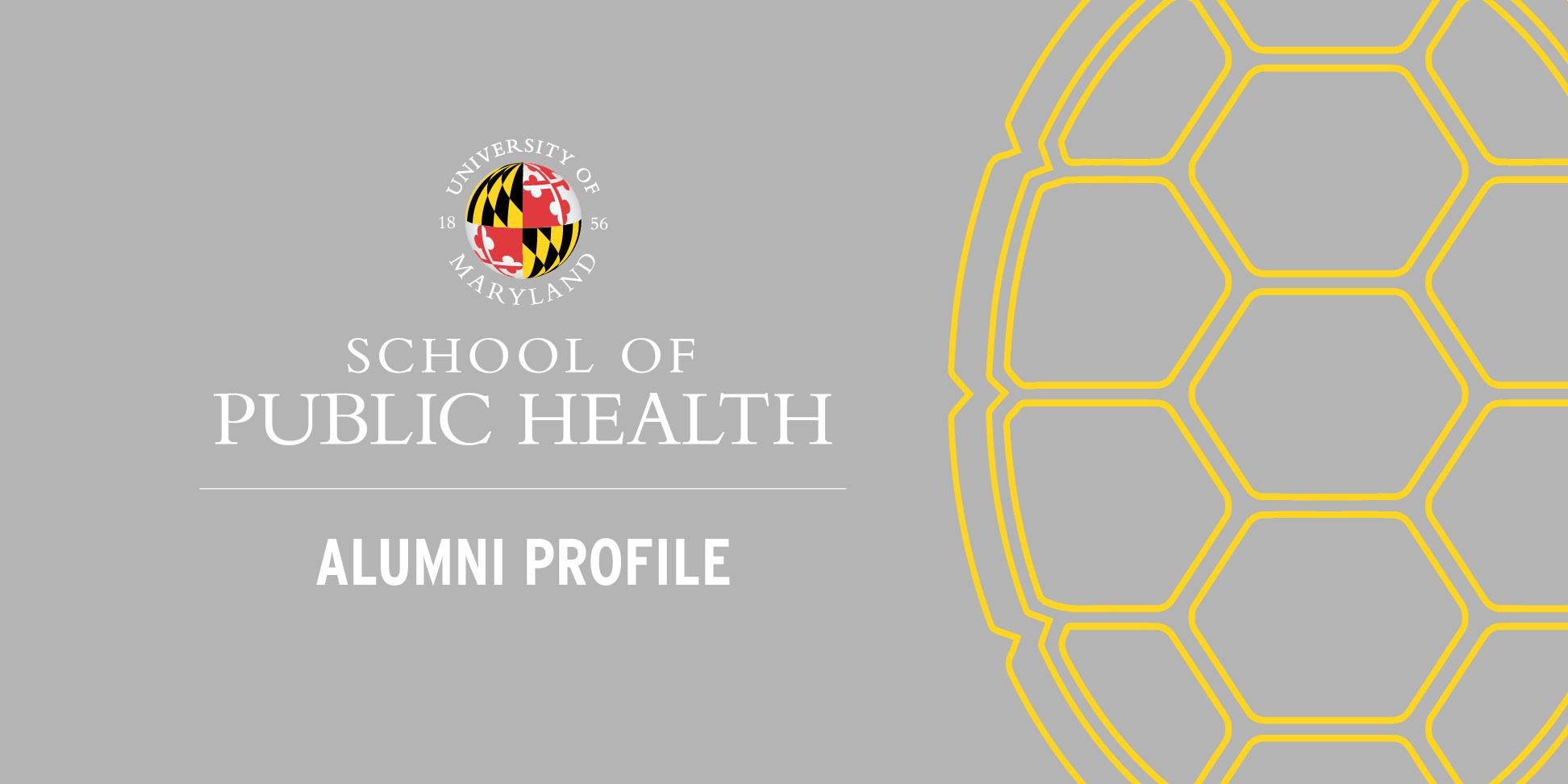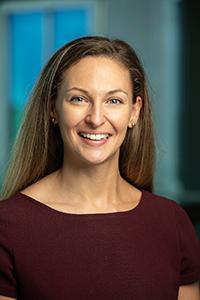

Jennifer Guida
In 2020, Jennifer Guida transitioned from a Cancer Research Training Award Postdoctoral Fellow at the National Cancer Institute (NCI)/National Institutes of Health(NIH) to a Program Director at the NCI/NIH. Her role allows her to stimulate new areas of science and continue pursuing her own research on improving healthy longevity for long-term cancer survivors.
What inspired you to study public health?
I was an anthropology undergraduate at Arizona State University, and I got the question from my parents, what are you going to do with that degree? The truth is I didn’t know. I knew I wanted to study something related to human disease, and in the School of Anthropology, a lot of the focus is on primates like monkeys and gorillas. I was working in a genetic anthropology lab, which I found really interesting, but I was processing a lot of monkey samples for like tuberculosis and things like that. I really didn't care about the monkeys so much. I just wanted to explore why we see disease and human populations, and I was really fascinated with how diseases spread over time.
Originally, I was quite interested in infectious disease, and so that's what got me interested in public health. I had watched this documentary about the top 10 public health achievements or something like that in one of my classes, and I really became inspired by Paul Farmer. I read the book “Mountains Beyond Mountains,” and that really changed what I felt like I could do in the world. I felt like I could make a difference and improve the health of the world. His work really inspired me to become interested in global public health.
What person or experience had the greatest impact on you during your degree program?
My advisor Dr. Hongjie Liu had a huge influence on me. He was my PhD advisor, so we worked really closely together. I studied social networks and worked with him on stuff related to HIV/AIDS, and I became interested in cancer. That’s how I pursued working at the National Cancer Institute. He really encouraged me to apply as a pre-doctoral student to do a summer fellowship there and try to get my foot in the door and learn more about cancer and the social determinants of health as they relate to cancer. I really credit him for pushing me to pursue different opportunities. I also would say that Dr. Gold really influenced me.
He was the chair of our department at the time. I took one of his courses, and he got me involved in a lot of opportunities within the School of Public Health. I became the Dean’s representative from our department. I sat in on all the faculty meetings for the Department of Epidemiology and Biostatistics, which was a really good learning experience for me, especially because at the time I was really thinking I would go into academia. You get sort of an insider scoop on how these departments function and work. If there were new prospective students coming to the school, they would ask me to talk to these students, tell them about my experience and answer their questions. I really got to be involved in the School in that way, and it helped shape a positive experience for me.
How did the Epidemiology program and your experiences at UMD prepare you to do what you're doing now?
I basically continue to do research in my role. As an epidemiologist, you're trained in study design, so designing different types of research studies, doing data analysis and exploring various research questions. I think epidemiologists have a pretty broad view of different areas of research. The thing that connects us to all these different broad areas of research is the methods that you use to design and analyze data. I think epidemiology is sort of the foundation of a lot of different research. I use that in my day-to-day job. I still conduct research, as I mentioned, so I work closely with secondary data sets. I'm constantly analyzing data. I also work with collaborators like St. Jude Children's Research Hospital and talk about big data questions, different research topics and how we would go about answering those research ideas.
Epidemiology is at the forefront of that, and so other ways I use epidemiology are to think about new areas of science. For example, right now, we're talking about how we identify cancer survivors who are living the longest and have the healthiest lives. For one, how do we find those people for one? Two, how do we look at their health profiles, and what becomes a standard of care for cancer survivors? What are their health behaviors? What are their social factors that could contribute to their prognosis? Things like that, and so having the epidemiology skills to think through are key. How would I test that research question? What data would I need? What’s the best study design to answer that question? They’re all relevant to what I’m doing, so my epidemiology degree is valuable.
How has COVID-19 impacted your role?
It hasn’t actually impacted my day-to-day life that much other than the fact that I’m working from home all the time, which is challenging with a six-month-old baby. Since I’m at the NIH, we are constantly getting emails and are informed of what is actually going on in terms of vaccine production and distribution and things like that. I wasn't personally involved in vaccine development, the NIH Moderna vaccine. We were getting updates about that, which was really interesting. I would also say there have been more opportunities about exploring COVID-related research.
So as a program director, our job is to stimulate new areas of science, and not a whole lot is known about COVID. So one of the ways in which program directors can contribute to furthering the science is to put out funding opportunity announcements that provide the extramural research opportunities to get grant funding to explore COVID-related research projects. We've put out different opportunities to look at. I work at the National Cancer Institute, so we try to have a cancer focus. So how has COVID-19 impacted cancer treatment? Cancer survivors are a high-risk group. How has that disrupted their treatment regimens, etc? Also, how has social isolation impacted different cancer outcomes? I think those are important questions that remain to be answered.
How do you think this pandemic will change or impact public health?
I really hope that we can use COVID-19 and the response, or lack of response, as a lesson to future infectious disease and pandemic threats. This is not the first time that an infectious agent has caused a worldwide pandemic, and we should have been more prepared. We should have responded earlier. Even in terms of vaccine distribution, there have become problems with, states trying to administer all these vaccines to health care workers, and older adults and the people who really need them right now. We've also been very slow to do vaccine uptake. I hope that COVID-19 has taught us a lesson about how we can improve our emergency preparedness in a way that's equitable and in a way that’s speedy.